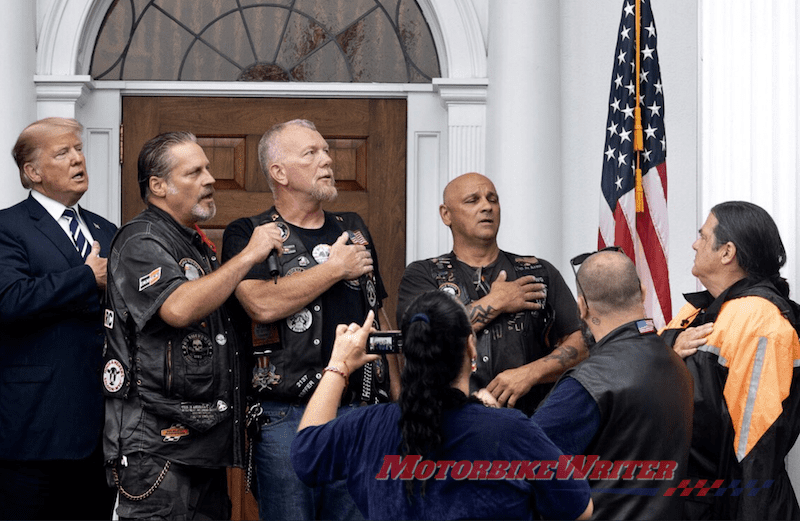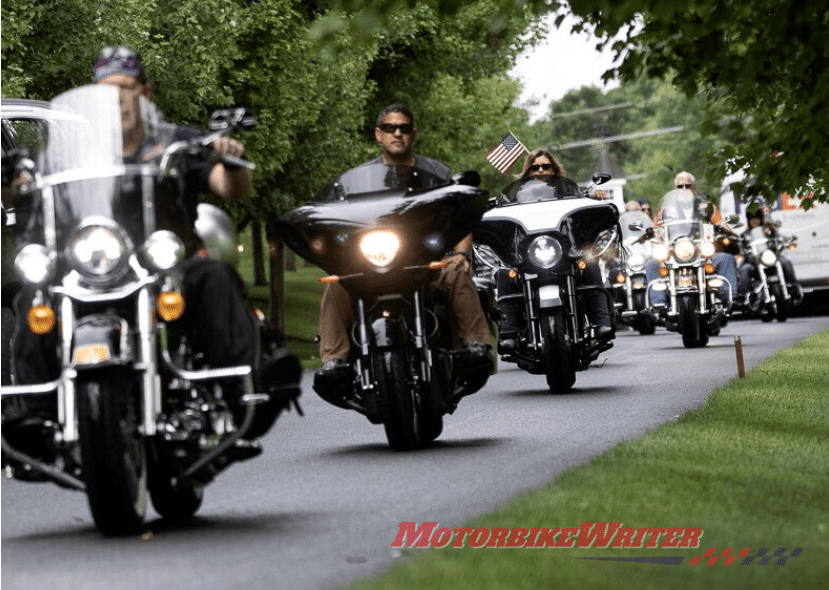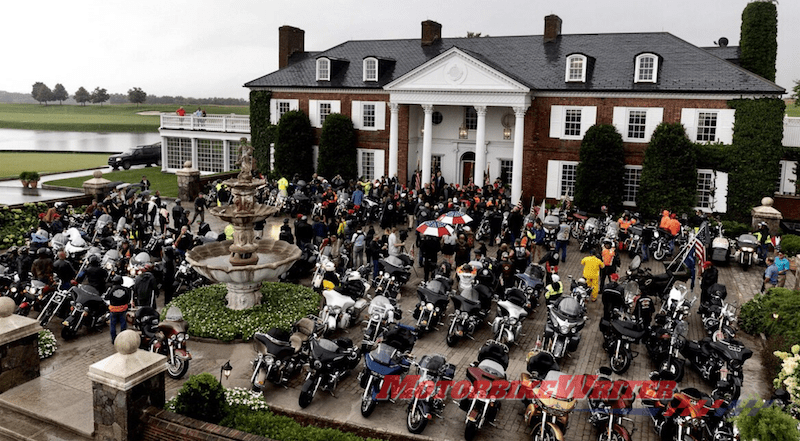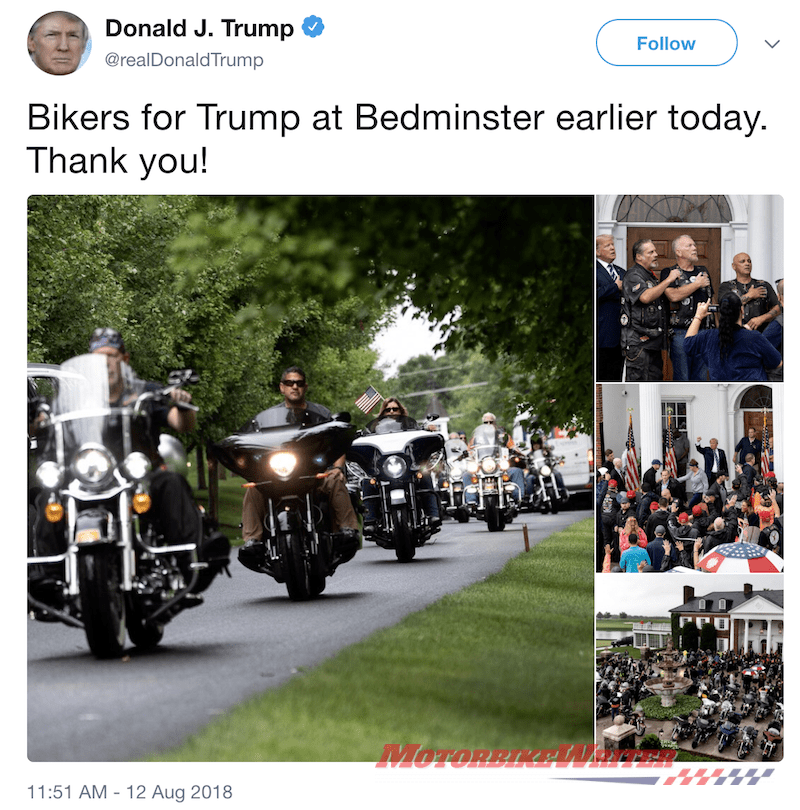Speculation of a boycott of Harley-Davidson over plans to shift some production overseas are blown out of proportion, yet it hasn’t stopped President Trump from tweeting about it or US media from lapping it up.
Poor old Harley has become the whipping boy in the ongoing trade war negotiations and has battened down the hatches, making no comment. The company is finding it increasingly difficult to remain “apolitical” as CEO Matt Levatich said last month.
The latest salvo in the trade wars came at the weekend when the New York Times reported the alleged planned boycott.
Hardly a widespread boycott
Journalist Alan Rappeport attended the Sturgis Motorcycle Rally and quoted three riders who said they disagreed with Harley moving some of its production overseas to supply foreign markets with bikes to avoid hefty European tariffs brought on by Trump’s ongoing trade war.
That’s just three riders.
One Harley owner, aged 67, said it would be his last. Well, it may be his last bike, anyway.
Another said he believed the company was planning to move the bulk of its production offshore and that Americans would be forced to buy an overseas product.
That’s actually incorrect. Harley said they would continue to make bikes in America for the domestic market.
It also ignores the fact that there are already factories in India and Brazil that make bikes for those markets.
For the past three years Australians and many other countries have been buying Indian-made Street models. The Street 500 has consistently been one of the top 10 motorcycles in Australia and for a while the company’s most popular bike.
A Thai factory that has been built over the past couple of years — well before the trade war started. It is about to start production for overseas markets.
The third rider the New York Times journalist spoke to rides Japanese bikes and no longer aspires to riding a Harley.
That’s hardly amounts to a boycott.
Yet Trump and the US media have picked it up and run with it.
Trump tweeted:
Many @harleydavidson owners plan to boycott the company if manufacturing moves overseas. Great! Most other companies are coming in our direction, including Harley competitors. A really bad move! U.S. will soon have a level playing field, or better.
Trump’s tweet followed a weekend meeting with “Bikers for Trump” supporters at his posh golf club in New Jersey where the supporters urged a Harley boycott.
Trump loves these guys. Earlier this year Trump tweeted:
I guarantee you everybody that ever bought a Harley-Davidson voted for Trump. I don’t know if you know that. I would have to — they call them bikers for Trump. There’s hundreds.
There may be a few hundred fanatical Bikers for Trump members, but Harley sold almost 150,000 bikes in the US last year.
Hypocritical
Interestingly, the New York Times also reports that the founder of “Bikers for Trump” sells pro-Trump T-shirts made in Haiti because American-made products cost $8 more.
He’s not the only hypocrite.
The New York Times reports that the White House has used Chinese-made silverware, and that many campaign materials for the president’s 2020 bid are being manufactured elsewhere.
The White House denied a report that “Keep America Great” flags for Trump’s 2020 re-election campaign were being produced in China, despite photos from inside the factory.
Also a wide variety of products sold under the Trump name are made overseas, including China, the Netherlands, Mexico, India, Turkey, Slovenia, Honduras, Germany, Bangladesh, Indonesia, Vietnam and South Korea.
Many of these products are labelled as “Made in America”.
Background
The trade war saga is a long one that really goes back to when Harley executives met Trump on the White House lawns in February 2017 right after his inauguration.
They complained about India’s hefty tariffs on their bikes.

Trump incorrectly cited the tariffs to support his attack on world trade, saying the US has been disadvantaged.
This year the trade war escalated when Trump increased steel and aluminium tariffs. Europe and China responded with higher tariffs on US goods.
At the forefront in all this tit-for-tat “negotiation” has been Harley-Davidson.
They have not only been hit with higher prices for their steel and aluminium, but also face higher tariffs in Europe and China.
In response, they made the rational business decision to keep a lid on their international prices by manufacturing some of their bikes overseas.
There may be concern among owners about the quality of Harleys being jeopardised by overseas production.
But it doesn’t seem to have stopped many other motorcycle companies from doing exactly the same thing.
I’m heading to Harley’s 115th birthday bash in Milwaukee this month to ride the 2019 models.
I’ll talk to a few more than three riders, gauge the sentiment and see how many actually understand what is going on.





